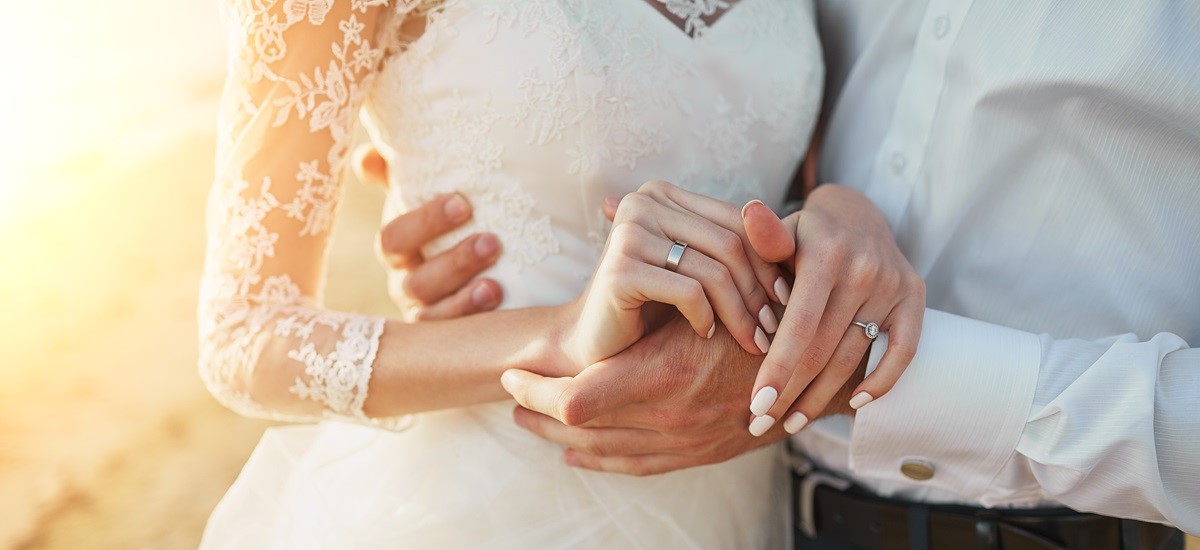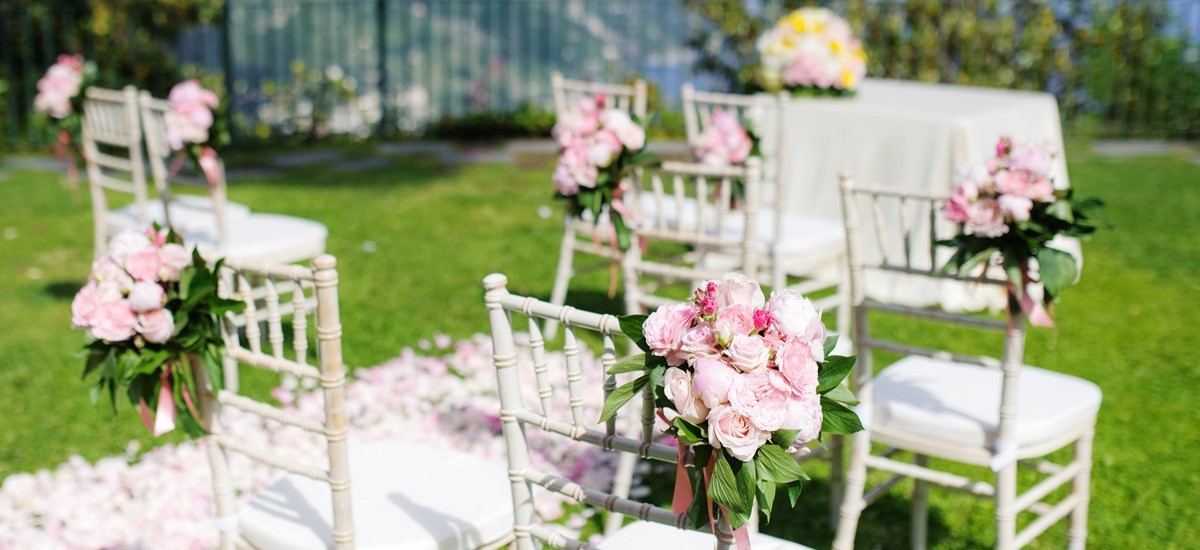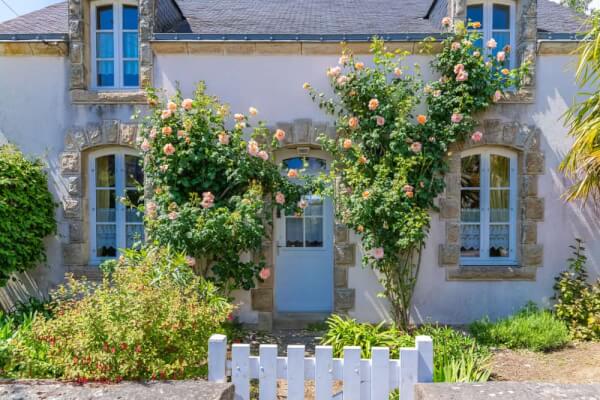Long-stay visa for France: types, requirements and costs (UK guide)
Staying in France for over 90 days? Find out which long-stay visa you need and how to apply. Plus, make your money go further in France with a Wise account.

France is one of the most popular destinations for couples from the UK and the rest of the world to exchange their vows and celebrate their love. From the picturesque countryside to the charming cities, there is an abundance of spots to choose from.
In this article, we'll explain the process of getting married in France. We’ll take a look at the necessary paperwork, provide you with some tips to help you plan, as well as mention some French wedding traditions you might find interesting.
We will also share a handy way to manage your wedding expenses abroad. The Wise card can be used in 150+ countries, including France, letting you send and spend at the mid-market exchange rate.

Couples worldwide choose France for its stunning scenery, delicious food and romantic atmosphere. However, legal requirements can complicate the process and make it more expensive.
If you’re a foreigner, you can get married in France once you’ve resided there for at least a month and have proof of domicile or residence. At least one of the spouses should have a lasting bond with France, such as a home or other residence.1
A civil wedding ceremony is the only legally binding type of ceremony in France. It has to take place in a town hall (mairie), in a room open to the public.1
You can also have a wedding ceremony in France after marrying in the UK, but you’ll need to provide a marriage certificate first.2
A civil wedding ceremony takes place in a town hall and is officiated by the mayor or a deputy. Only in case of serious impediment, the wedding can be moved to another location, such as your home or a healthcare facility.1
You can only celebrate your wedding in a commune with which either you or your partner have a connection. This can either be the residence of one of you or your parents.1
If you wish to get married in a French church or another religious place of worship, you must go through the civil wedding first.
The civil wedding can be done either in the UK or in France. Either way, your marriage certificate will be checked before setting the church wedding date.2

Same-sex marriage was legalised in France in 2013.3 However, both same-sex and heterosexual couples have been able to enter civil partnerships since 1999.
Pacte Civil de Solidarité, or PaCS in short, isn’t as strict as traditional marriage, but it’s made for people who want to be recognised as partners without additional legal binds.4
In case you want to incorporate some French wedding customs into your ceremony, here are some suggestions:
The legal age of marriage in France is 18. Minors can only get married if they have the permission of one of their parents at minimum. Of course, there is no upper limit when it comes to age.1
Marriage between relatives is not allowed. Only parties that consent to the marriage can be part of one. If this is not the case, the public prosecutor or one of the spouses can cancel the marriage.1
You’ll also need to have at least two and no more than four witnesses at your wedding. Their responsibility is to confirm your identities and the accuracy of your statements.5
Foreigners wishing to get married in France will need to reside in France for more than a month before the wedding and have proof of that. This proof of residence or domicile can be a document such as your rental lease or utility bill.1
Non-French nationals might also need to provide a certificate of celibacy to prove they’re single. This document needs to be translated into French.1
In order to get married in France, you should build a dossier, or a marriage record. It should contain all the documents needed for marriage and those required for foreigners. You will then bring it to the town hall in which your ceremony will take place.
These are the documents you’ll need to provide:
Your witnesses will need to submit copies of their IDs, as well a form with some personal information. This includes their occupation, date and place of birth and address of residence.1
To get married in France, you must reside there for at least one month. It’s a good idea to arrive even earlier, just in case any unexpected issues arise.
You can find the British Embassy in Paris at 35, Rue du Faubourg St Honoré.
Public access to the embassy is only available by appointment, but you can contact them through an online inquiry or by phone in case of an emergency.6
You can also access consular services in Bordeaux and Marseille.6

Let’s go through some of the most important steps of getting married in France:
The type and size of your wedding will be the starting point for determining your budget and planning everything else. Additionally, the kind of ceremony you choose can impact the documents you’ll need to gather.
A wedding planner can save you a lot of time and help you navigate organising a wedding abroad. Since venues often need to be booked over a year in advance, hiring one should be one of your first steps.
You’ll need to have proof of residence for at least a month to get married in France, so you should find a place to live at this point. This is a good time to check whether your passports are valid and that you can locate your birth certificate.
All documents, such as divorce papers from a previous marriage, must be translated into French. The exact list of documents will depend on your circumstances, so be sure to check in advance whether you need any additional paperwork.
You’ll need between two and four witnesses at your wedding in France, so now’s a good time to decide who they’ll be. It’s best to ask them ahead of time to ensure they’re available on the big day.
At least ten days before your wedding, the marriage banns must be posted at the town hall. You won’t be able to get married until ten days have passed since the announcement.1
Here’s a summary of what you need to do to get married in France:

Your civil wedding will be held in the town hall, but you can later celebrate at a different location. There’s a variety of options available in France, but it’s important to start searching in time.
The best time for your wedding depends on the type you’re planning, but spring, summer and early autumn are generally the most popular. Winter weddings in France can be just as beautiful and may help you save money compared to peak season.
Some of the most popular wedding destinations are the Provence countryside, Burgandy vineyards, the French Alps, the Loire Valley or the French Riviera. However, French cities are also great options, especially if you’re planning an indoor wedding.

One of the most beautiful wedding venues in France is the Château Challain in the Loire Valley. The magnificent stained glass windows, lake-filled gardens and a grand ballroom make this venue feel like a fairytale.7
If you’d like to tie the knot on the Côte d'Azur, Domaine de Canaille in the Calanques National Park is a breathtaking choice. The villa has direct access to the beach, a stunning view of the Mediterranean Sea and 12 rooms for your guests.7
Finally, for a Provencal wedding, Château des Barrenques offers a wonderful setting. Located near a river and surrounded by lavender and sunflower fields, it’s the perfect choice for those who want to be immersed in nature.7
You can also expect to pay for birth, death or marriage certificates, which cost £12.50 for standard service and £38.50 for fast-track.8 A prenuptial agreement is another expense, with costs depending on the size of your assets.9
Getting married in France can be as lavish or as simple as you like, depending on your preferences and budget. Here’s a cost breakdown of how much couples spend on average:
| Category | Approximate cost10 |
|---|---|
| 🏰 Venue | €6,000 - €15,000+ |
| 🍴 Catering | €70 - €250 per person |
| 📝 Wedding planner | €2,000 - €10,000 |
| 📷 Photography | €1,500 - €8,000+ |
| 💐 Decorations | €800 - €4,000+ |
| 🎶 Music | €1,500 - €8,000 |
Travel and accommodation costs, as well as transportation within France, should be part of your budget. If you plan on paying for professional makeup, the prices can be high if you don’t book in advance.
You’ll need to not only visit France before your wedding, but also reside there for at least a month.
A wedding planner can help you find and book a venue, as well as manage the timeline of your destination wedding. While it can be a significant cost, their local expertise makes it worthwhile.
The town hall usually has an interpreter that can be present for your wedding ceremony.1
📚 Cost of getting married abroad
A handy way to cover your wedding-related expenses is opening a Wise account. It can help you handle travel costs before the wedding, hire a wedding planner or interpreter, or even the officiator, all while still in the UK.
A Wise account makes it easy to manage your money across borders, allowing you to send large amounts and convert money with low fees*. You can send money to 140+ countries, including France, and hold 40+ currencies in your account.
There may be few places more romantic than getting married in France, but it can be a big hit to your budget. Depending on your preferences, the venue could cost upwards of €20,000 and a wedding planner might set you back as much as €10,000.
Paying for your wedding with your Wise account can help you save on currency conversion. Since most expenses for your French wedding will be in euros, using Wise gives you access to the mid-market exchange rate with low, transparent fees*, helping you avoid extra mark-ups and make your wedding budget go further.
That means, you may be able to afford that dream honeymoon to Mauritius, too!
Large transfers are also more convenient with Wise, thanks to Wise’s dedicated support team. If you’re sending £20,000 or more, you’ll receive a discount and save on transfers for the rest of the month. Request a call back below or email the team before you plan your big day in Spain.
Sources used:
1. Service-public.fr - marriage in France
2. Weddings Abroad Guide - France wedding ceremony
3. INED - same-sex marriage
4. Russell Cooke - PaCS
5. Service-public.fr - witnesses to a marriage
6. Gov.uk - British Embassy in Paris
7. French Wedding Style - best wedding venues
8. Gov.uk - certificates
9. Service-public.fr - marriage contract
10. Weddings Abroad Guide - costs
Sources last checked on date: 16-Jul-2025
*Please see terms of use and product availability for your region or visit Wise fees and pricing for the most up to date pricing and fee information.
This publication is provided for general information purposes and does not constitute legal, tax or other professional advice from Wise Payments Limited or its subsidiaries and its affiliates, and it is not intended as a substitute for obtaining advice from a financial advisor or any other professional.
We make no representations, warranties or guarantees, whether expressed or implied, that the content in the publication is accurate, complete or up to date.

Staying in France for over 90 days? Find out which long-stay visa you need and how to apply. Plus, make your money go further in France with a Wise account.

Can I keep my French bank account if I move abroad? Find out everything you need to know here in our handy guide.

Read our helpful guide on how to transfer a UK pension to France, including the steps, fees and taxes involved.

A guide to the French residence permit, covering who can apply, how to apply, how it works and costs.

Have a look at our complete guide to selling your property in France, including the process, fees, taxes and more.

Everything you need to know about healthcare in France for British pensioners, including your rights to state healthcare and how to register.